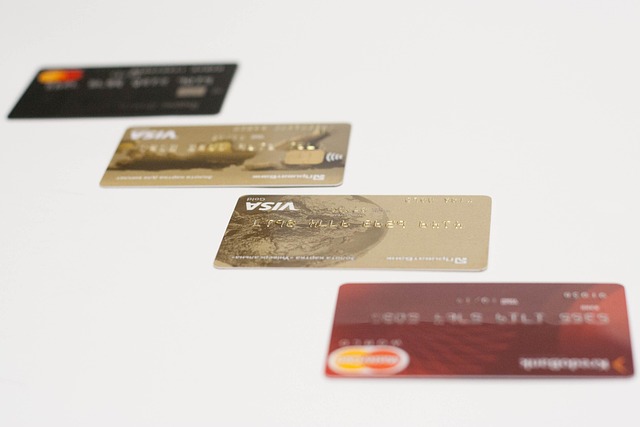Discover Affordable No Deposit Apartments for Rent: Your Ultimate Guide to Hassle-Free Living in 2025
Finding an apartment without the traditional security deposit barrier has become increasingly popular among renters seeking more flexible housing solutions. No deposit apartments offer an alternative path to securing rental housing without the substantial upfront costs that can create financial strain. This comprehensive guide explores how these arrangements work, their benefits and considerations, qualification requirements, and practical strategies for finding these opportunities in today's competitive rental market.

What Are No Deposit Apartments and How Do They Function?
No deposit apartments are rental properties where landlords waive the traditional security deposit requirement through alternative arrangements. Instead of paying a lump sum upfront, tenants may purchase deposit insurance, pay a non-refundable fee, or participate in deposit alternative programs. These arrangements typically involve third-party companies that guarantee payment to landlords for potential damages or unpaid rent. The tenant pays a monthly fee or annual premium instead of the traditional deposit, making move-in costs significantly more manageable. Property management companies often partner with services like Rhino, LeaseLock, or TheGuarantors to offer these alternatives.
Key Benefits and Considerations When Choosing No Deposit Rentals
The primary advantage of no deposit rentals is immediate financial relief, allowing renters to preserve cash flow for other moving expenses like utility deposits, moving services, and furniture. This accessibility particularly benefits first-time renters, those rebuilding credit, or individuals relocating for work who need to minimize upfront costs. However, important considerations include understanding that fees paid for deposit alternatives are typically non-refundable, unlike traditional deposits which can be returned. Additionally, tenants remain liable for damages beyond normal wear and tear, and some programs may require higher credit scores or income verification than traditional rentals.
Common Criteria and Qualifications for Renting No Deposit Apartments
Landlords offering no deposit options often maintain strict qualification standards to mitigate risk. Typical requirements include credit scores of 650 or higher, though some programs accommodate lower scores with additional fees. Income verification showing earnings of 2.5 to 3 times the monthly rent is standard. Employment history demonstrating stable income for at least six months is frequently required. Some programs require co-signers or guarantors for applicants who don’t meet income thresholds. Background checks screening for evictions, criminal history, and rental references remain standard. International students or visa holders may face additional documentation requirements, including proof of financial support or specialized guarantor services.
Comparing No Deposit vs Traditional Apartment Rental Processes
Traditional rental processes require security deposits equal to one or two months’ rent, first month’s rent, and sometimes last month’s rent upfront. This can total $3,000 to $6,000 for a $1,500 monthly rental. No deposit alternatives reduce move-in costs to first month’s rent plus a smaller fee, typically ranging from $10-$100 monthly or $200-$500 annually. The application process for no deposit apartments may involve additional steps, including enrollment in deposit alternative programs and extended verification periods. Traditional deposits offer tenant protection through potential refunds, while no deposit fees provide upfront savings but no recovery option. Damage liability remains similar in both scenarios, with tenants responsible for costs exceeding normal wear and tear.
Rental Market Insights and Regional Variations Worldwide
The no deposit apartment trend has gained significant traction in major metropolitan areas where high rental costs create barriers to housing access. In the United States, cities like New York, Los Angeles, and San Francisco have seen increased adoption among luxury and mid-range properties. European markets, particularly in London and Berlin, offer similar programs through local insurtech companies. Australia’s rental market has embraced bond alternatives through services like RentBond and Rental Rewards. Asia-Pacific regions, including Singapore and Hong Kong, are beginning to explore deposit alternatives as rental prices continue rising. The availability of no deposit options often correlates with competitive rental markets where landlords seek to differentiate their properties and attract qualified tenants quickly.
| Service Provider | Monthly Fee Range | Coverage Options | Geographic Availability |
|---|---|---|---|
| Rhino | $10-$100/month | Up to $5,000 coverage | US nationwide |
| LeaseLock | $15-$120/month | Full deposit replacement | Major US cities |
| TheGuarantors | $75-$300/month | Lease and deposit guarantee | US and UK markets |
| Obligo | No monthly fee* | Deposit-free living | US and European markets |
*Obligo uses billing authorization rather than monthly fees
Prices, rates, or cost estimates mentioned in this article are based on the latest available information but may change over time. Independent research is advised before making financial decisions.
Practical Tips for Finding No Deposit Apartments in 2025
Start your search by filtering rental listings on major platforms like Apartments.com, Zillow, or Rent.com using “no deposit” or “deposit alternative” keywords. Contact property management companies directly to inquire about deposit waiver programs, as not all properties advertise these options prominently. Consider working with local real estate agents who specialize in rentals and understand available deposit alternatives in your area. Research corporate housing providers and extended-stay properties that often offer flexible deposit arrangements. Join local housing Facebook groups or community forums where landlords may advertise flexible rental terms. When contacting properties, prepare documentation demonstrating strong financial credentials to strengthen your application for deposit alternative programs.
Successfully securing a no deposit apartment requires understanding the various alternatives available, meeting qualification criteria, and conducting thorough research in your target area. While these arrangements offer significant upfront savings, carefully evaluate the long-term costs and terms before committing. The growing availability of deposit alternatives reflects evolving rental market dynamics that prioritize accessibility and flexibility. By understanding how these programs work and preparing appropriate documentation, renters can successfully navigate the no deposit apartment market and secure quality housing without traditional financial barriers.




